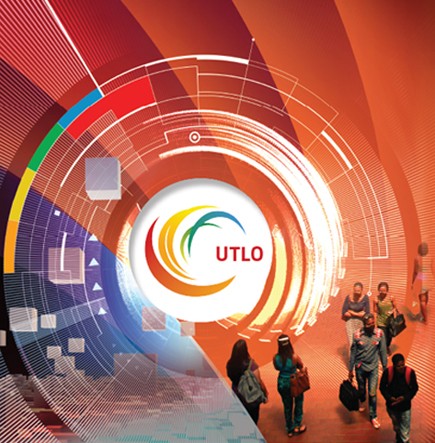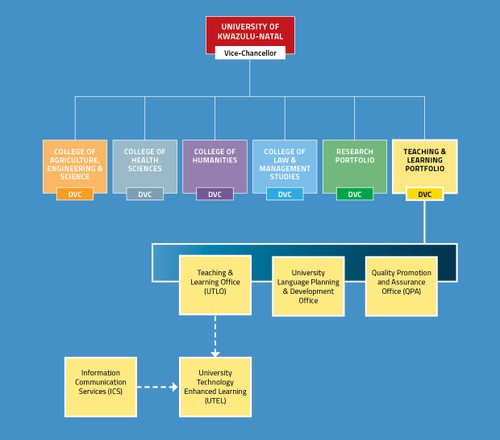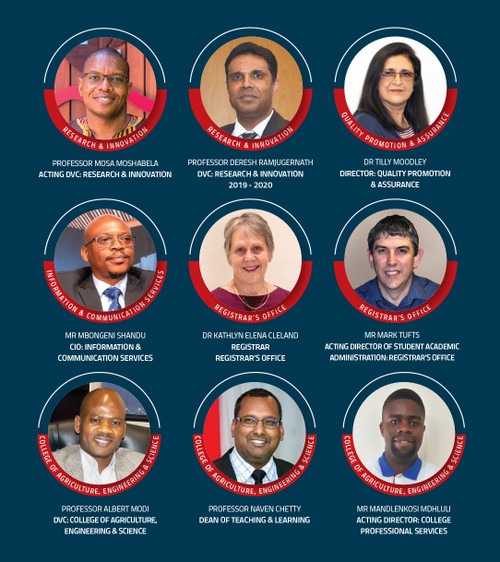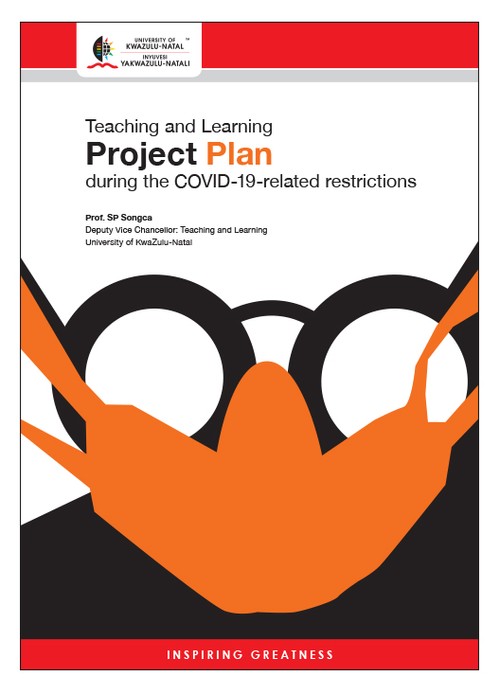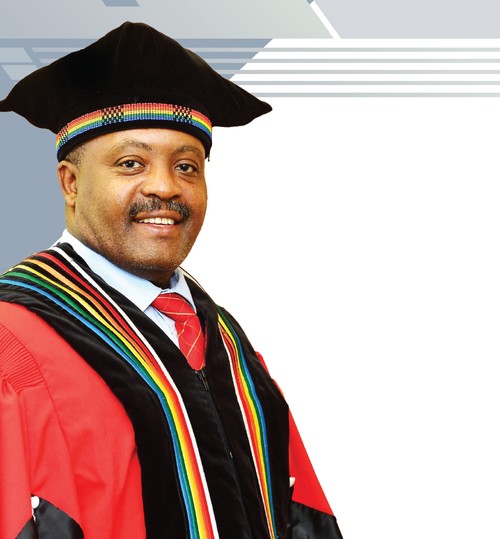
Vice-Chancellor for Teaching & Learning:
As the continuity of teaching and learning survived sustained pressure mainly due to disruptive protest originally devised and used to transiently unbundle unjust colonially derived systems, neither leaders nor practitioners could predict the overwhelming scale of the disruption by the current pandemic.
The planning focused on digital migration and online automation to introduce efficiencies and agility to track and meet the rapidly changing needs of society, circumvent disruption and forecast the trends emerging from technologies of the fourth industrial revolution in the workplace by means of the fourth education revolution in higher education. Higher education rankings are now starting to focus also on teaching quality and identify the courses for which different universities are well known. It is accepted that the best-prepared students and highest performing academic staff will be attracted to higher education environments offering the best teaching, learning, research, innovation, industry engagement and livelihood generating experience for them. Hence the drive at UKZN to advance the efficiencies of its internal teaching and learning organisations and their interactions with externally based partners in advancing student learning.
The relative novelty at UKZN and among most other universities of focusing on and elevating student learning is among the most important and key success factors that will play important roles in the determination of the brand prominence and preference by industry and society of the university in the future. However, it is the current internal politics and scrambling for resources that determine in meaningful ways the progress made in this regard. The content of teaching and learning strategy – in the strategic and turn-around framework of the university in pursuit of the transformation required for continuity – has to be the basis upon which any university builds a student learning culture that puts the student at the centre of the pedagogy.
Apart from the realization that student learning is the objective of higher education, which influenced the advancement of student learning in the reporting period intervening between 2019 and 2020, the pursuit of efficiencies from digital migration and online automation was the fundamental passion even before being compelled by the world colonisation of the severe and acute respiratory syndrome viruses which broke out subsequently as the mother of all disruptions. In this way even as we could forecast efficiencies and continuity of student learning through the integration of the technologies of the fourth educational revolution in the digital migration and online automation project, we could not predict that a disruption of this nature would further buttress such an executive-level paradigm shift. Thus COVID-19 would also help in strengthening the UKZN drive towards the elevation of the internal organisation to advance student learning through the internalisation and application of many critical technologies of the fourth educational revolution to meet the demands of the advancing fourth industrial revolution in the workplace. The paradigm shift that the UKZN teaching and learning organisation embarked upon was to internalise technology in teaching, learning, and administration to prepare students now for adequate response and relevance in the world of work and service that they will enter in three to seven years.
The paradigm shift that the UKZN teaching and learning organisation embarked upon was to internalise technology in teaching, learning, and administration to prepare students now for adequate response and relevance in the world of work and service that they will enter in three to seven years.
There would be sufficient maintenance of the practices that had come to characterise the student learning support in the reporting period with the academic monitoring and support taking its first steps towards digital migration and online automation by adopting the student dashboards in the procedural principles. The re-emergence of the teaching and learning committee of Senate from the ashes of the Teaching & Learning Strategy Group, would be an institutional milestone for the elevation of the internal organisation of the University for student learning. This is to be distinguished from elaborating organisation under the Teaching & Learning theme; which amounts to lobbying for escalation of teaching and learning as a higher priority among several internal kingdoms. The deceptive lure to such kingdom formation; a common flaw found in the corporate organisational culture, is avoided in the re-imagination and elevation of the student learning internal organisation at the UKZN by the elaborate establishment of the permeating cross-cutting structure and reflective praxis, which consists of decentralisation of the cornerstone activities such as scholarship of teaching and learning; the academic monitoring and support colloquium; tutorship; mentorship; language; writing; reading; and the intentional online learning module based development of the student learning proficiencies. In addition to this, although it was withdrawn and paused from Senate consideration, the cornerstone of the UKZN teaching and learning strategy was the cross-cutting structure that positioned the think-tank for student learning, digital migration, online automation and technology enrichment as a virtual cross-cutting platform for open innovation by school-based participants including students, staff, government, labour, industry, business, and societal champions. The importance of the advancement of isiZulu to achieve the level of its use as a language of teaching and administration over the next 10-15 years, was met by the great strides made by the University Language Promotion and Development Office with developments such as the isiZulu term bank and corpus, the digital and online automated translation application, as well as the publication of various books aligned to this strategic goal.
The curriculum review process continuing from the cyclic approach to review the entire program and qualification mix was taken over by the project renewal which also aims to effect a complete overhaul of the curriculum for better internal and external alignment, relevance and responsiveness. This also aligns with external reviews such as the recent doctoral review now coming to the implementation phase of the approved improvement plan following the national peer-review of the UKZN doctoral offerings based on the virtual site visit and self-evaluation report submitted by the University. The tremendous effort of Professor Dunpath was rewarded with the award of the Krege Grant for the Siyaphumelela Project which was centred around the development and advancement of the UKZN data analytics for student learning improvement and curriculum review. Clearly, during this period the overhaul of the curriculum not only took centre stage, but was afforded multiple viewpoints for re-imagining the UKZN academy in line with local and global skills demands initially for purposes of economic growth, but more recently for the recovery after COVID-19 sponsored economic melt-down. Digital migration and online automation also emerge as the underpinning key success factor for the curriculum project; both in terms of the planned development, management, review and implementation through the evolving emergency remote teaching towards full online learning.
Digital migration and online automation also emerge as the underpinning key success factor for the curriculum project; both in terms of the planned development, management, review and implementation through the evolving emergency remote teaching towards full online learning.
The evolutionary emergence of the digital migration, online automation, and the higher educational colonisation by the technologies of the fourth industrial and educational revolution, and their application towards the integration of teaching, learning, assessment and especially community engagement for the external alignment of the organisational arrangements for student learning in the corporate culture of the UKZN is by far the issue of highest impact for the 2019 and 2020 reporting cycle. The containment of what could have been a chaotic concomitant institutional response into a plan with a semblance of order, strategy and vision, is largely due to the combined efforts of the multiplicity of interests harnessed through the combination of high-level think-tank activities with broad stakeholder engagements, which took care to centralize the student voices and interests. The UKZN continues its efforts to elevate the internal organisational arrangements for student learning through a multiple-threaded fabric permeating the university organisational structure at schools, colleges and professional support services to specifically avoid the silo and kingdom formation paradigm and maximise the impact on the advancement of student learning at UKZN.
Professor Sandile P. Songca
Deputy Vice-Chancellor: Teaching and Learning

